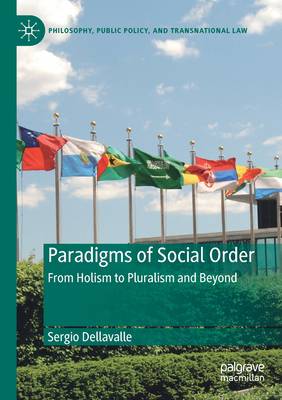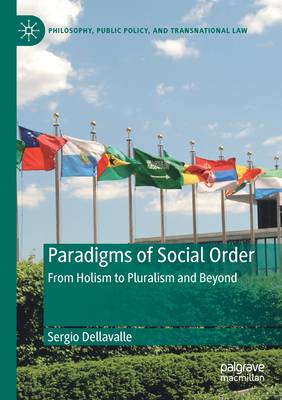
- Retrait gratuit dans votre magasin Club
- 7.000.000 titres dans notre catalogue
- Payer en toute sécurité
- Toujours un magasin près de chez vous
- Retrait gratuit dans votre magasin Club
- 7.000.0000 titres dans notre catalogue
- Payer en toute sécurité
- Toujours un magasin près de chez vous
Description
No social life is possible without order. Order being the most constituent element of society, it is not surprising that so many theories have been developed to explain what social order is and how it is possible, as well as to explore the features that social order acquires in its different dimensions. The book leads these many theories of social order back to a few main matrices for the use of theoretical and practical reason, which are defined as 'paradigms of order'. The plurality of conceptual constructs regarding social order is therefore reduced to a manageable number of theoretical patterns and an intellectual map is produced in which the most significant differences between paradigms are clearly outlined. Furthermore, the 'paradigmatic revolutions' are addressed that marked the most relevant turning points in the way in which a 'well-ordered society' should be understood. Against this background, the question is discussed on the theoretical and practical perspectives for a cosmopolitan society as the only suitable possibility to meet the global challenges with which we are all presently confronted.
Spécifications
Parties prenantes
- Auteur(s) :
- Editeur:
Contenu
- Nombre de pages :
- 461
- Langue:
- Anglais
- Collection :
Caractéristiques
- EAN:
- 9783030661816
- Date de parution :
- 26-04-22
- Format:
- Livre broché
- Format numérique:
- Trade paperback (VS)
- Dimensions :
- 148 mm x 210 mm
- Poids :
- 566 g

Les avis
Nous publions uniquement les avis qui respectent les conditions requises. Consultez nos conditions pour les avis.






